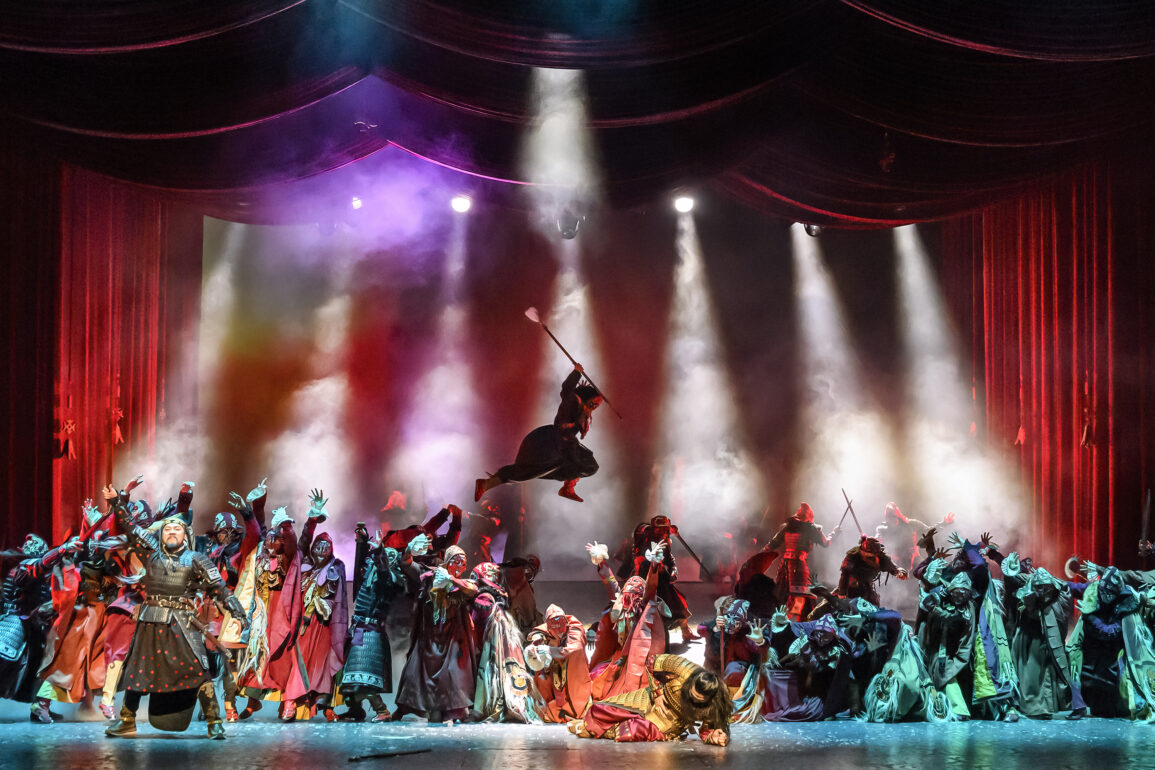
Behind the scenes of ‘The Mongol Khan’
When a play is being staged with the express purpose of celebrating 60 years of diplomatic relations the odds on artistic quality aren’t stacked hugely in its favour.
‘The Mongol Khan’ is a theatrical spectacle from Mongolia – dance, music, seemingly infinite costumes, a 70-strong cast, some light puppetry and lots of fierce shouting – that clearly has serious money behind it. It is very impressive, but at the same time seems like it was made by someone whose only frame of reference was Olympic opening ceremonies and Disney films.
It’s a lavish production of a play about a fictional Khan (ruler), written in 1998 by the late, nationally-renowned writer Lkhagvasuren Bavuu and directed by his friend Hero Baatar. The story is your standard tragedy plot: Achug Khan gives birth to two sons, one by his wife and one by his consort. Problem is, Khan hasn’t ’spilled his seed’ inside his wife for 20 years so whose is the baby? She’s been, well, practising her Mongolian throat technique with his top advisor Egereg. Egereg has the babies swapped so his own son will be brought up to be Khan.
This derivative story, peppered with a few deaths, plays out very slowly. Every ponderous line in Timberlake Wertenbaker’s faux-grandiloquent translation (as Egereg prepares to kill his lover, he is stayed by ‘the memory of the hardened nipples I used to stroke’) is met with a thunderclap and extended dance sequences while pounding martial music provides a relentless underscore.
Extravagance is the watchword here. The many, many costumes are amazing, the lights change every second (red for baddies, white for goodies), and meanwhile haze swamps the stage in prodigious quantities. At any moment, dozens of heavily-tasselled dancers quiver in the background of scenes. Sometimes they act as extensions of the thoughts or actions of a main character onstage, creating striking recursive visual patterns. Too often they are redundant: a constant visual reminder of the misplaced excess of the production.
In terms of sheer magnitude it’s unlike anything you’re likely to see in London. Plenty of beautiful stage images and a great battle scene at the end somewhat redeems things, but mostly it’s prodigality instead of theatricality, a diplomatic mission as much as a piece of theatre.
This post was originally published on this site be sure to check out more of their content.





